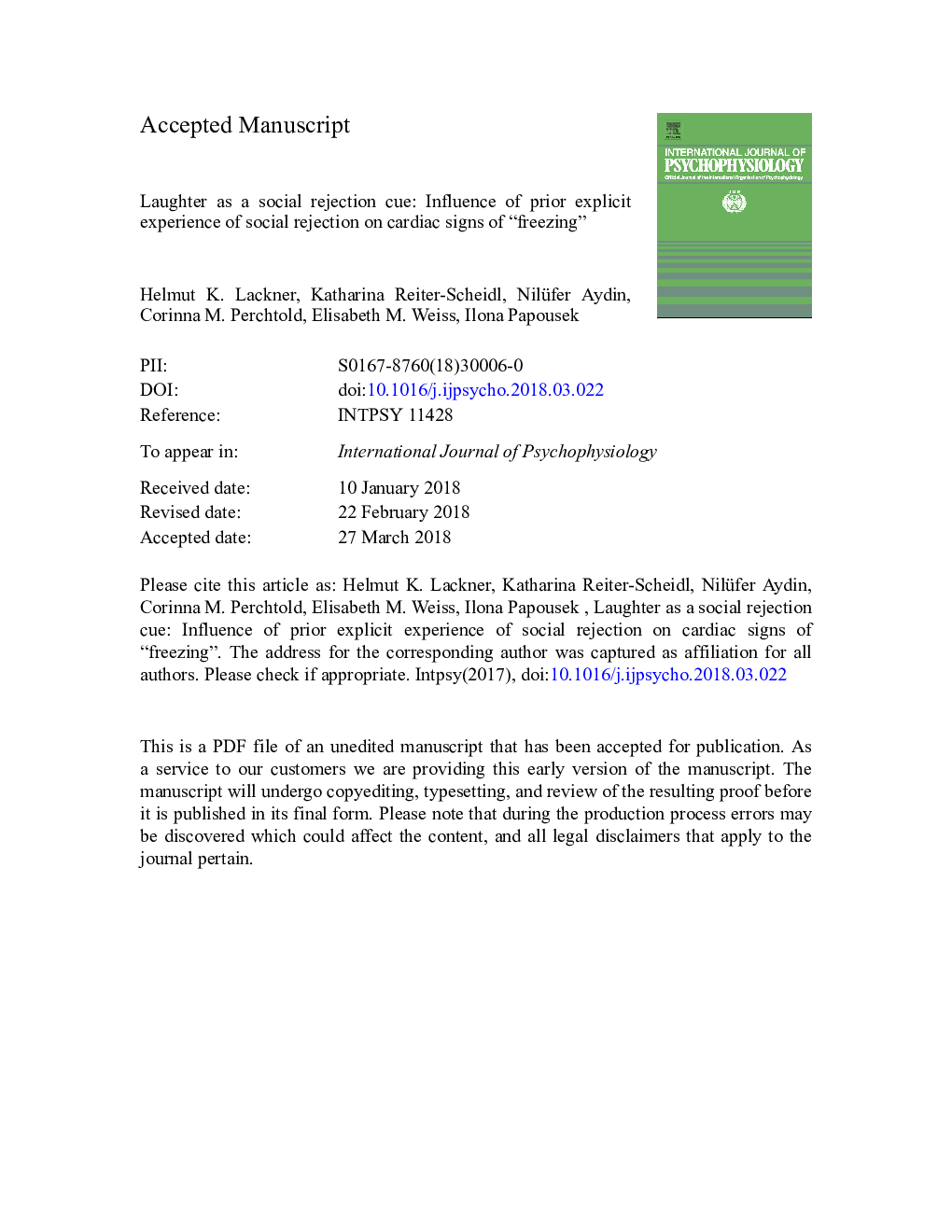| کد مقاله | کد نشریه | سال انتشار | مقاله انگلیسی | نسخه تمام متن |
|---|---|---|---|---|
| 7294804 | 1474368 | 2018 | 28 صفحه PDF | دانلود رایگان |
عنوان انگلیسی مقاله ISI
Laughter as a social rejection cue: Influence of prior explicit experience of social rejection on cardiac signs of “freezing”
ترجمه فارسی عنوان
خنده به عنوان یک نشانه رد اجتماعی: تأثیر تجربه صریح گذشته از رد اجتماعی بر روی علائم قلبی یک؟
دانلود مقاله + سفارش ترجمه
دانلود مقاله ISI انگلیسی
رایگان برای ایرانیان
کلمات کلیدی
تغییرات ضربان قلب گذرا، دوره زمانی، رد کردن اجتماعی، خنده انجماد زمینه اجتماعی،
موضوعات مرتبط
علوم زیستی و بیوفناوری
علم عصب شناسی
علوم اعصاب رفتاری
چکیده انگلیسی
The study aimed at investigating the immediate cardiac effect of the sudden perception of other people's laughter after experimentally manipulating healthy participants' proneness to experience laughter as a cue of social threat. We expected that participants would show cardiac signs of freezing (i.e., sustained heart rate deceleration immediately after perception of the laughter) after prior social rejection but not or less so after prior acceptance, due to an increased bias to perceive the ambiguous social signal as a cue of social threat and rejection after rejection had been primed. Contrary to expectations, the perception of other people's laughter elicited a decelerative (freezing) response regardless of whether it was preceded by the experience of social rejection or acceptance. The response was prolonged in participants who had been accepted beforehand compared to those who had been rejected. The findings indicate that, given a relevant social context, other people's laughter can be a powerful cue of social threat and rejection also in healthy individuals. Prolonged heart rate deceleration after an ambiguous social signal may facilitate the processing of significant social information in the socially threatening situation. The study adds to the literature rendering the course of the immediate transient heart rate response a useful tool in social rejection research. Additionally, the findings suggested that in some cases the further progress of transient heart rate changes in more extended time-windows (about 30â¯s) may provide additional relevant information about the processing of social cues.
ناشر
Database: Elsevier - ScienceDirect (ساینس دایرکت)
Journal: International Journal of Psychophysiology - Volume 128, June 2018, Pages 1-6
Journal: International Journal of Psychophysiology - Volume 128, June 2018, Pages 1-6
نویسندگان
Helmut K. Lackner, Katharina Reiter-Scheidl, Nilüfer Aydin, Corinna M. Perchtold, Elisabeth M. Weiss, Ilona Papousek,
